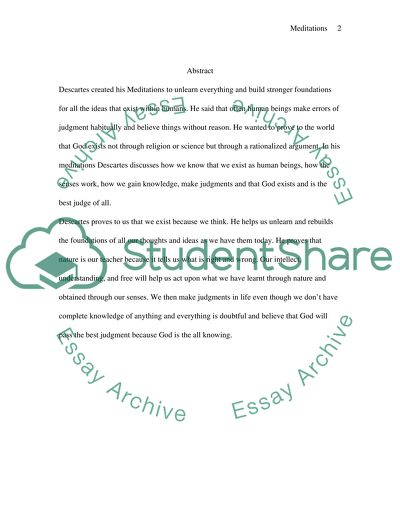Cite this document
(“Descartes and his Meditations on the First Philosophy Essay”, n.d.)
Retrieved from https://studentshare.org/philosophy/1499076-descartes-and-his-meditations-on-the-first-philosophy
Retrieved from https://studentshare.org/philosophy/1499076-descartes-and-his-meditations-on-the-first-philosophy
(Descartes and His Meditations on the First Philosophy Essay)
https://studentshare.org/philosophy/1499076-descartes-and-his-meditations-on-the-first-philosophy.
https://studentshare.org/philosophy/1499076-descartes-and-his-meditations-on-the-first-philosophy.
“Descartes and His Meditations on the First Philosophy Essay”, n.d. https://studentshare.org/philosophy/1499076-descartes-and-his-meditations-on-the-first-philosophy.


